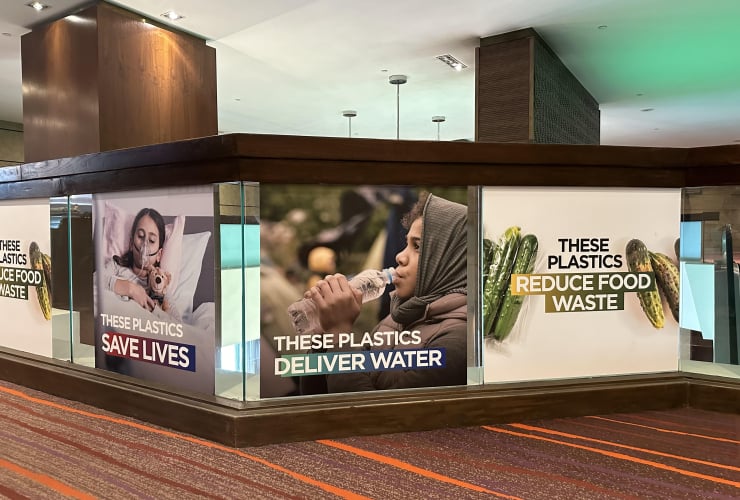Support journalism that lights the way through the climate crisis
Ocean cleanup groups worry years of work and good jobs tied to cleaning up plastic pollution on Canadian shorelines are set to flounder after the federal government cut a critical source of funding in the recent budget.
The Ministry of Fisheries and Oceans’ (DFO) Ghost Gear Fund — which sunk nearly $60 million into 139 projects to alleviate the problem of ocean plastics — isn’t outlined in the recent federal budget, said Josh Charleson, relationships director with the Coastal Restoration Society based in B.C.
The fund was created in 2020 to curb and tackle the harmful impacts plastic ropes, nets, Styrofoam floats, traps and other gear from the commercial fishing and aquaculture sectors have on ocean animals, people and marine ecosystems.
More than 2,214 tonnes of plastic debris and nearly 900 kilometres of rope have been pulled from Canada’s oceans and beaches as a result of the funding.
The ghost gear initiative has helped create a fledgling “blue” restoration economy that has spurred industry innovation, needed infrastructure to divert marine debris from landfills, and clean good-paying jobs in rural coastal communities, especially for Indigenous people — all of which are on the line if federal funding dries up, Charleson said.
“It’s too bad, really,” said Charleson, noting the move seems inconsistent with Canada’s pledges and leadership to reduce ocean plastics at home and around the world.
“It doesn’t bode well to make international agreements and then, on the other hand, cut funding that is making that work happen on the ground.”
The jobs and training tied to stewarding ocean waters are particularly valuable to coastal First Nations as other good-paying jobs in the traditional hard-hit forestry and fishing sectors decline, said Charleson, also a former chief of the Hesquiaht Nation and a commercial fisher.
Funding cuts to the program will significantly impact not only coastal cleanups but new marine debris recycling infrastructure developed over the past four years, said Chloé Dubois, executive director of the Ocean Legacy Foundation.
The ghost gear program helped Ocean Legacy set up collection depots on both the West and East coasts, where plastic gear from shoreline cleanups was sorted for reuse by fishing and aquaculture operators, recycled or repurposed, Dubois said.
“Our depots act as education hubs for communities to learn about the issues of ghost gear and plastic pollution,” she said.
“They also help divert what should be considered valuable resources away from landfills.”
The goal is to create a “closed-loop” economy for plastics to drastically stem the production of new goods, the bulk of which find their way into marine or aquatic ecosystems, she said. The foundation also sources plastics from fishing ropes and other gear to turn them into pellets that can be used to manufacture durable secondary products like boats and “plastic lumber” for park benches, patio furniture and picnic tables.
There is a significant gap for coastal communities to process plastic materials once they're collected, particularly in Atlantic provinces, said Dubois.
“We’ve set up a robust system, the infrastructure needed and all of the training,” she said.
“It’s been quite a large effort, and not having the funding renewed jeopardizes all of the work we've done.”

Gord Johns, NDP MP for the Courtenay-Alberni riding on Vancouver Island, said he’s pressed Fisheries Minister Diane Lebouthillier on the issue repeatedly and has not gotten any clear answers about continued funding.
The federal government tabled a budget that seemingly cuts funding to clean up ocean plastic pollution just before hosting international negotiations for a global plastics treaty, Johns said.
“I’m absolutely flabbergasted and frustrated and coastal people are in disbelief. [The Ghost Gear Fund] became a renowned program, a model around the world.”
It’s critical for the federal government to commit to sustainable and reliable funding to clean plastics from oceans and bolster a recovery economy, Johns said.
Coastal communities are disproportionately impacted by marine plastics pollution and First Nations play a crucial role in ocean recovery efforts, he added.
The equivalent of 2,000 filled garbage trucks are dumped into oceans and waterways each day, Johns said. And 70 per cent of the weight of microplastics found in oceans everywhere, including Canada’s Arctic waters, come from ghost gear that breaks down into tiny particles in the marine ecosystems.
Getting plastics out of the ocean protects wildlife like threatened humpback or right whales, marine food webs and the health and food security of Canadians, Johns stressed, observing you can’t walk a beach on the West Coast that isn’t contaminated by tiny nodules of polystyrene foam.
The best way to prevent its spread, beyond a ban championed by an NDP private member’s bill, is to clean it up while it's still in manageable chunks, Johns said.
“It’s literally choking out the ecosystem, the species that live there, and us humans,” he said.
“We have the longest coastline in the world. It's critical that we take action.”
DFO did not respond to questions from Canada’s National Observer about funding concerns for the ghost gear program or coastal cleanup efforts.
Rochelle Baker / Local Journalism Initiative / Canada’s National Observer







Comments